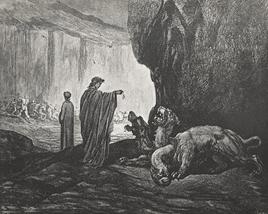
|
World Literature 270 |
|
Fall 2008 |


|
This course surveys world literature from the emergence of script through the Middle Ages, stopping just on the eve of the Renaissance. We will begin with a look at some ancient texts, including the first work of literature, Gilgamesh. Thereafter, the course is divided between five cultures: Greece, India, Japan, Islam and Christian Europe. Our goal is to appreciate the discrete traditions and values that characterize the literature of different cultures, while also exploring fundamental themes of human nature. Not least, we will be reading for pleasure, sampling among some of the world’s best known and appreciated works of literature. |
|
Required Texts (available at the Spartan Bookstore):
The Odyssey translated by Richmond Lattimore (Harper) The Ramayana translated and abridged by R.K. Narayan (Penguin) Sakuntala and the Ring of Recollection (Dover Thrift) The Tale of Genji (Dover Thrift) The Arabian Nights translated and edited by Haddaway (Norton) The Inferno (Signet)
Other texts available via internet, handouts and film:
The Hymn to Aten (handout) Psalm 104 (handout) Gilgamesh: http://i-cias.com/e.o/gilgamesh.htm Philoctetes: http://classics.mit.edu/Sophocles/philoct.html Bhagavad Gita (handout) Mahabharata (film) Atsumori and Dojoji (handout) Everyman: http://www.luminarium.org/medlit/everyman.htm
|
|
Aug. 25: Hymn to Aten and Psalm 104 27: Gilgamesh
Sept. 1: Holiday 3: Gilgamesh
Sept. 8: Odyssey 10: Odyssey
15: Odyssey 17: Odyssey
22: Philoctetes 24: Odyssey
29: Ramayana and the Rig Veda (handout) Oct. 1: Ramayana and the Upanisads (handout)
6: Ramayana 8: Bhagavad Gita
13: ESSAY #1 DUE—Mahabharata (film) 15: Sakuntala and the Ring of Recollection
20: Tale of Genji 22: Tale of Genji
27: Tale of Genji 29: Atsumori
|
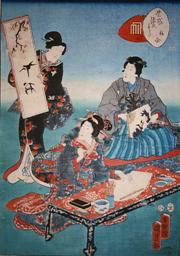
|
Nov. 3: Tale of Genji 5: Dojoji
10: Holiday 12: Arabian Nights
17: ESSAY #2 DUE 19: Arabian Nights
24: Arabian Nights 26: Inferno
Dec. 1: Inferno 3: Inferno
8: Everyman 10: Inferno
15: Final Projects and Essay Due Final ESSAY DUE |
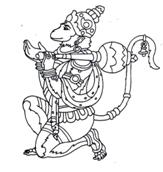
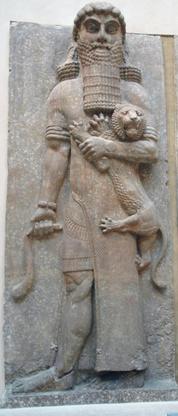
|
and by appointment. |
|
GRADING
Group Project 1: 50 pts Group Project 2: 50 pts Essay 1: 100 pts Essay 2: 100 pts Essay 3: 100 pts Reading Sheets 10 pts each |

|
Available on Blackboard: https://blackboard.miracosta.edu |
|
Group Project 1: The Presentation (50 points):
You will be asked by the end of the third week to choose a culture for a 15-20 minute oral presentation (to be given later in the semester) with a team of peers (max. of four). You may choose from any of the cultures presented in the class. The presentation should help the class appreciate a specific culture through the focus upon select manifestations of the culture. Each member of the group should be involved in the presentation. You should find select artifacts that represent the culture’s: Imago hominis (or virginis): what is the image of man/woman in this culture? That is, how is human nature understood and represented? Political order: what is the relationship of man/woman to the state and how is this evident in the public arts? Religious values: how is the understanding of human nature and political order defined by a religious belief system and in what ways is this evident in the arts? |
|
Group Project 2: The Board Game (50 points):
With the same group from your presentation you will create a “board game” that reflects the values of the culture you have focused upon and that is thematically based upon one of the literary works you have read. You will present this on the day of the final exam, where you will facilitate a tournament of your game. Accompanying the board game should be an instruction sheet that explains how the game works and what its underlying philosophy is.
|
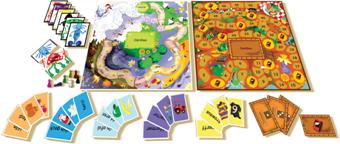
|
Essays (100 points each): The essays in this class are provided to help you study the literature more closely. Each essay will be comparative in nature, allowing you to develop your understanding of one work of literature by comparing/contrasting it to another. Very generally, you will be writing one essay comparing conventions regarding epic poetry, one essay comparing conventions of drama and one essay to be announced. Essays carry the most weight of all assignments. Make sure to take advantage of the Writing Center in the Hub and your instructor to help you prepare your essay. You may revise, but the final grade will be a combination of the original score and the revision. |
|
The Best Students Seek out Professional Advice. Why not visit the Writing Center at MiraCosta to seek input or assistance on your essays at any level of the composing process, from idea to draft. Drop-in Tutoring and Appointments Available in the Library/Information Hub: OCN Campus: 795-6682 SEC Campus: 944-4449 x7748
|
|
Reading Worksheets (10 points each): You will be assigned regular reading worksheets to help you reflect and process the texts you are reading and to ensure that we are all reading at the same pace. These will be due at the beginning of class. You may turn in one late reading worksheet, after which late worksheets for whatever reason will not be accepted. |
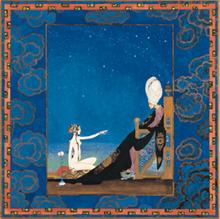
|
Beneath the image of Virgil stuffing the mouth of Cerberus from Inferno, you will find the institutionally defined Student Learning Outcomes for this course:
1) At the end of instruction in Literature 270, students will be able to differentiate between literal and figurative meanings and examine how literary texts use figurative techniques. 2) At the end of instruction in Literature 270, students will be able to identify and analyze a theme in a literary work and support that analysis with textual evidence 3) At the end of instruction in Literature 270, students will be able to explain a relationship between text and culture. |
